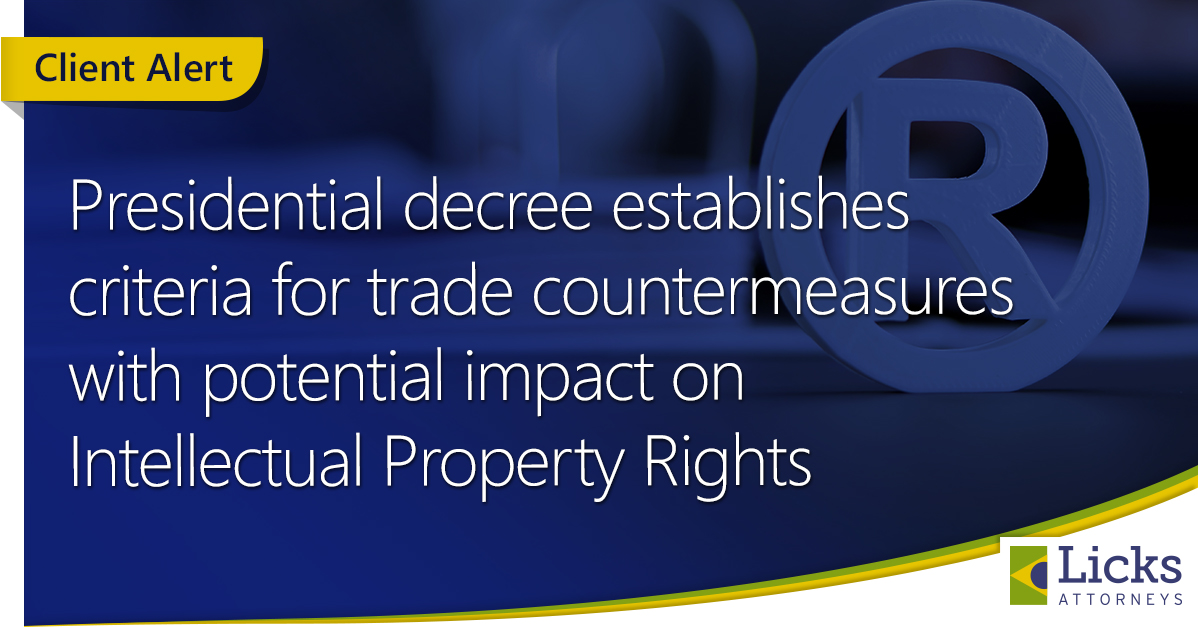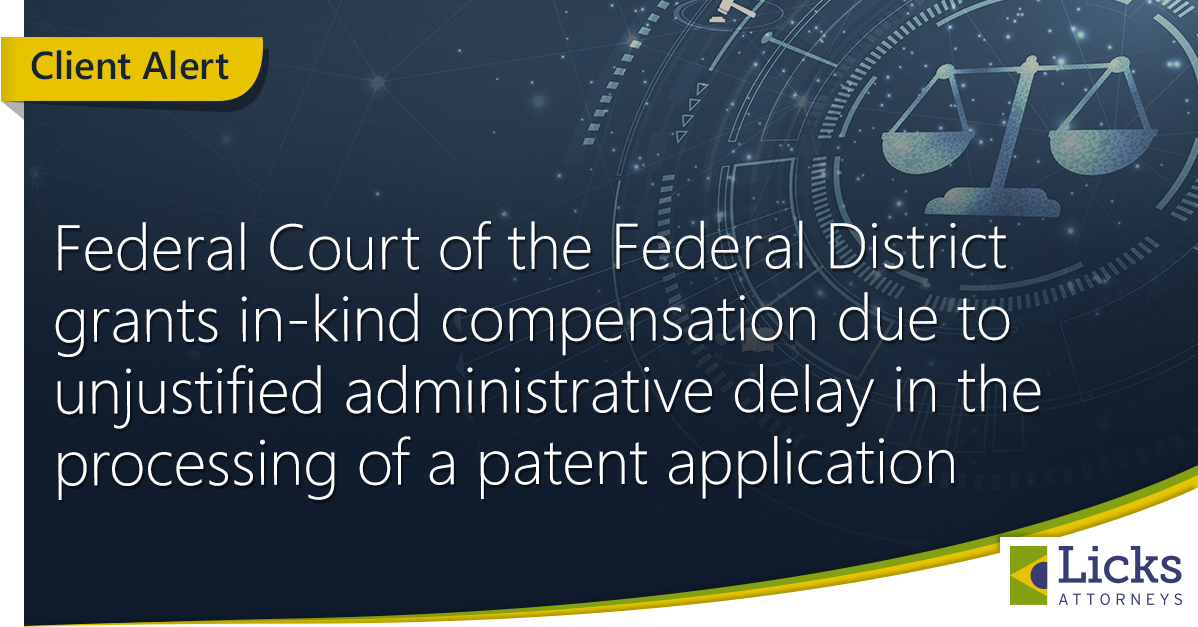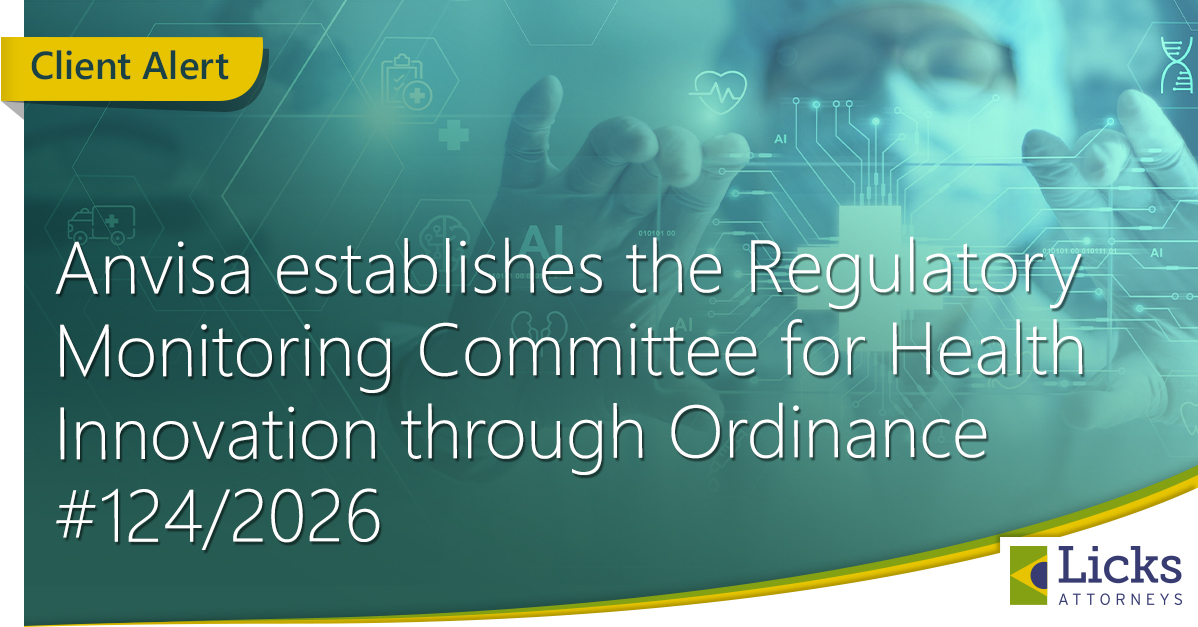Presidential decree establishes criteria for trade countermeasures with potential impact on Intellectual Property Rights

The decree outlines two distinct processes for applying countermeasures: the ordinary procedure and the procedure for provisional countermeasures.
Procedure for Provisional Countermeasures
The Procedure for Provisional Countermeasures, set forth in Articles 5 to 8 of the decree, is of an exceptional and immediate nature. These are urgent measures that can be implemented based on an initial technical justification.
Their application is managed by an interministerial committee, which consists of representatives from the Ministry of Development, Industry, Commerce, and Services (MDIC); the Ministry of Foreign Affairs (Itamaraty); the Ministry of Finance; and the Civil House of the Presidency of the Republic. The Foreign Trade Chamber (CAMEX), which would traditionally deliberate on such matters, does not participate in this procedure.
In this procedure, deliberations are made by a simple majority among the committee members (three out of four agencies), without the need for prior consultation with the potentially affected sectors. However, the Executive Secretariat may, should it deem necessary, consult authorities from the private sector and other federal government bodies with relevant expertise.
Before the final decision, the request is submitted to the competent ministries, which will provide technical opinions. The MDIC assesses the commercial and sectoral impacts of the measures, Itamaraty considers the diplomatic implications and potential violations of international agreements, and the Ministry of Finance evaluates the economic consequences for the competitiveness of domestic producers. Each agency may, should it deem relevant, suggest provisional countermeasures.
Such measures, once deliberated by the committee's resolution, are implemented directly, without the need for an additional decree. The committee retains the authority to adopt new provisional countermeasures at any time, amend the existing ones, or suspend their application, according to the international context and the country's strategic conditions.
Procedure for Ordinary Countermeasures
On the other hand, the procedure for ordinary countermeasures, set forth in Articles 9 to 15 of the decree, follows a more structured process, in accordance with Brazil's trade policy practices.
The procedure begins with the submission of a request to the Executive Secretariat of CAMEX, which must include details such as the description of unilateral measures adopted by other countries, the Brazilian sectors affected, and the estimated economic impact. Based on this information, the Executive Secretariat has a period of up to 30 business days, extendable for an equal period, to prepare a technical report on the classification of the situation under the provisions of Article 2 of Law #15,122/2025.
The report is then submitted to the CAMEX Executive Management Committee, responsible for deciding on the admissibility of the request. If the request is deemed valid, the Committee may establish a Working Group, with both public and private sector representatives, to draft the countermeasure proposal.
The approved proposal is then submitted to public consultation for up to 30 days. If permitted by the Executive Committee's Presidency, additional consultations may be conducted. After this period, the proposal returns to the Executive Committee and is forwarded to the Strategic Council of CAMEX, which has 60 days, extendable by an equal period, to issue its opinion. The final approval may be delayed if there are ongoing diplomatic negotiations. With all possible extensions, the process may take up to 180 days.
Other Considerations
The decree provides for diplomatic consultation, coordinated by the Ministry of Foreign Affairs, to seek a negotiated resolution before or during the application of countermeasures, formally notifying the trading partner at each stage of the process. Additionally, the effects of the countermeasures are monitored through reports, which also serve as the basis for proposals to modify or suspend measures, which may be presented at any time. Finally, the relevant agencies may issue complementary regulations, enabling the constant review and flexibilization of the rule.
The countermeasures provided for include a range of instruments, such as the suspension of concessions or trade benefits, restrictions on foreign investments, limitations on government procurement, suspension of tariffs or regulations, and the suspension of intellectual property rights.
Click here to read the original version of the decree.
Click here to read the English version of the decree.
Recent Alert
-

New Bill foresees a mechanism to adjust patent terms
February 24, 2026 -

Federal Court of the Federal District grants in-kind compensation due to unjustified administrative delay in the processing of a patent application
February 19, 2026 -

Anvisa establishes the Regulatory Monitoring Committee for Health Innovation through Ordinance #124/2026
February 19, 2026
